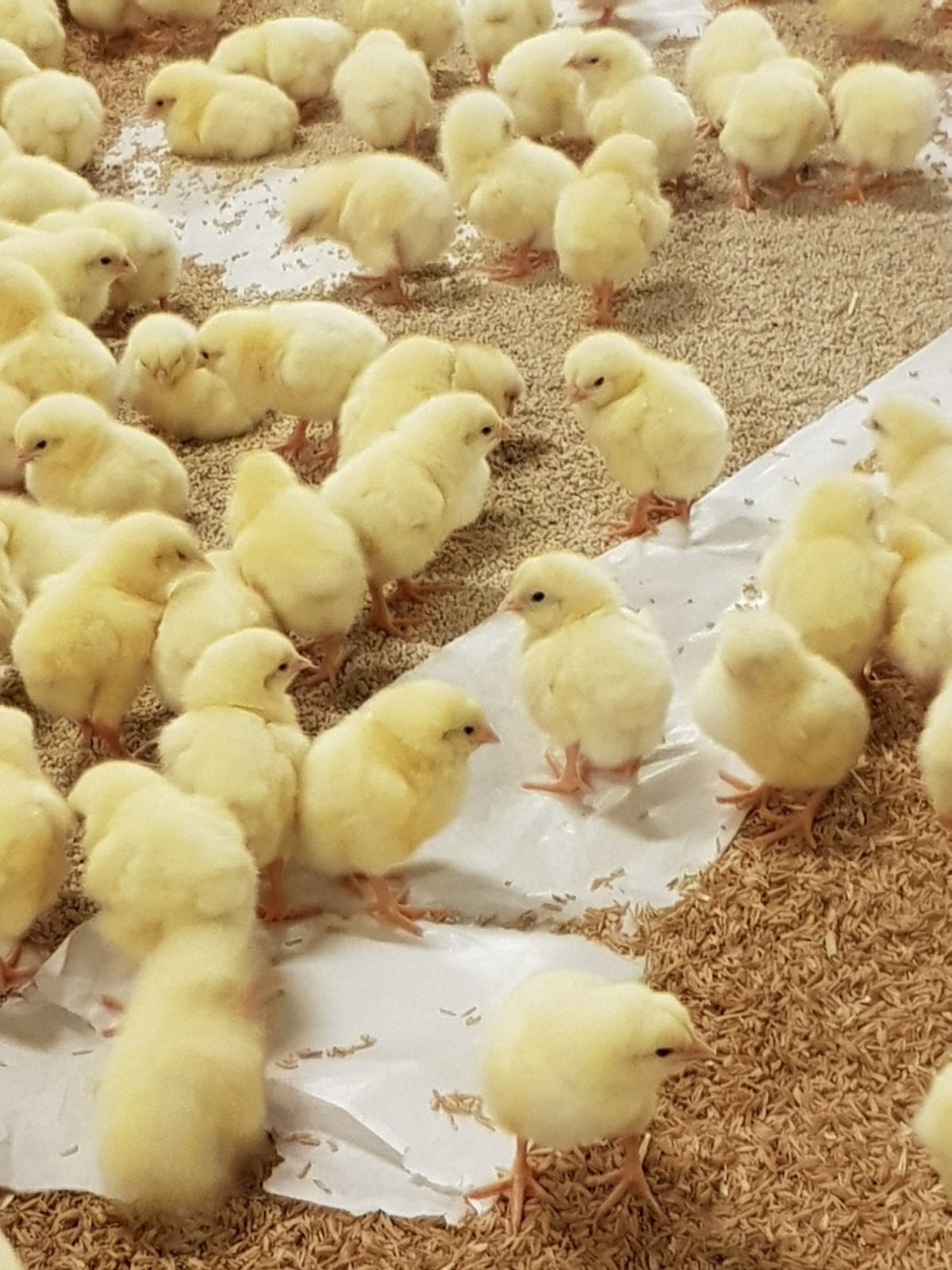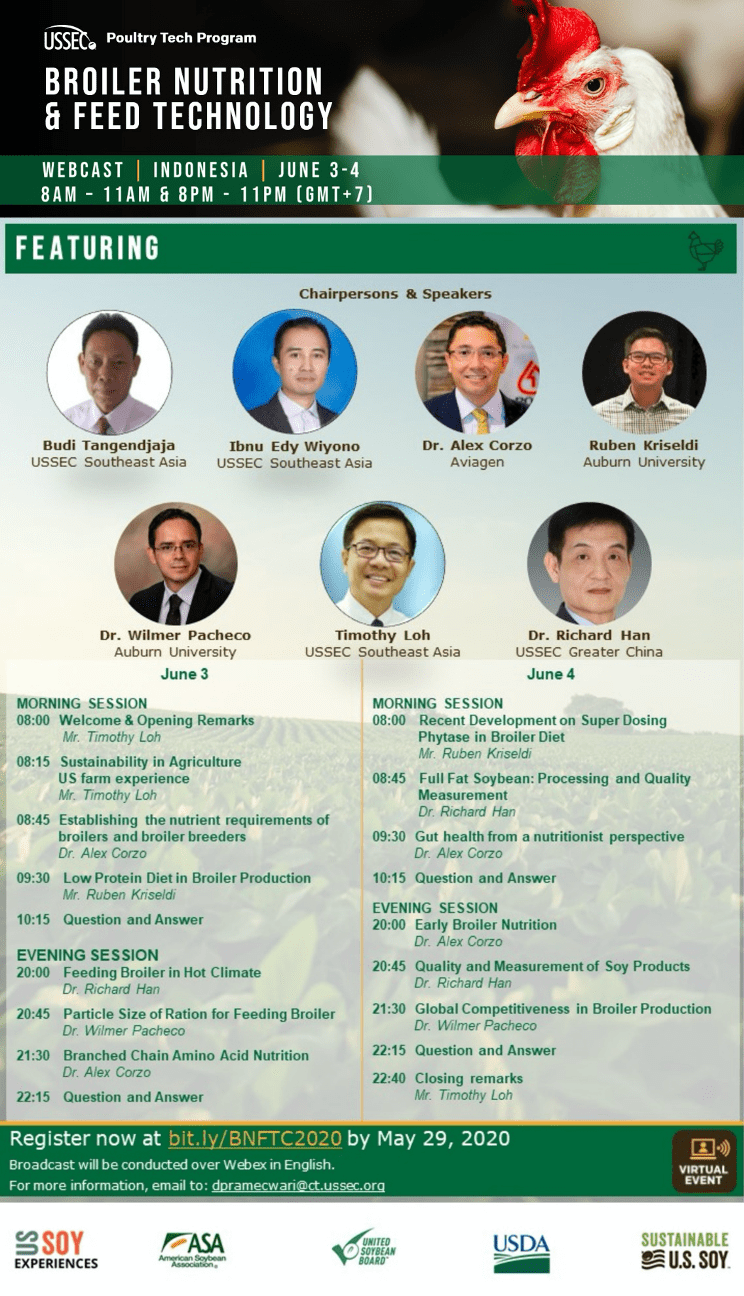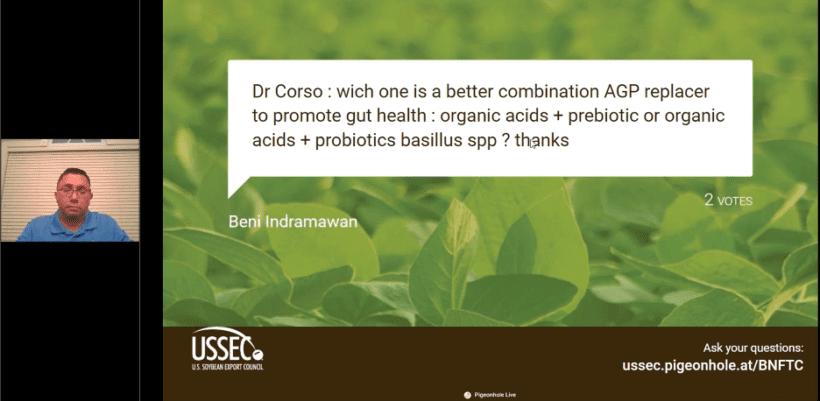Southeast Asia Broiler Producers Learn How U.S. Soybeans’ Intrinsic Value Can Help Improve Broiler Farm Efficiency
- Category:
- Animal Utilization
- Ground Work

As part of USSEC’s continuous effort to develop stronger awareness and preference toward U.S. soybean meal advantages in Indonesia, USSEC organized a virtual seminar on Broiler Nutrition and Feed Technology on June 3 and 4.
Chris Rittgers, Agricultural Counselor, Foreign Agricultural Service (FAS), U.S. Department of Agriculture (USDA) U.S. Embassy Jakarta, opened the seminar, followed by welcome remarks from Timothy Loh, USSEC Regional Director – Southeast Asia.
This virtual seminar, conducted over two days, was further broken down into morning and evening sessions which allowed some 230 regional viewers – mainly from Indonesia as well as Malaysia, Myanmar and Australia – to resume their activities in their farm and/or feed mill without affecting their work routine.
Using the GoToWebinar platform for the webcast, the speakers engaged the viewers on key considerations for efficient broiler farm operations. Viewers also actively participated in the live Q&A segments at the end of each session.
Main takeaways from the virtual seminar included:
USSEC Country Director – Indonesia Ibnu Wiyono reiterated that some of the critical factors for an efficient broiler farm operation that were highlighted by the speakers has a strong linkage to the intrinsic values of U.S. Soy and assessed that the seminar had accomplished the objectives of developing stronger awareness and preference toward U.S. soybean meal in Indonesia.

